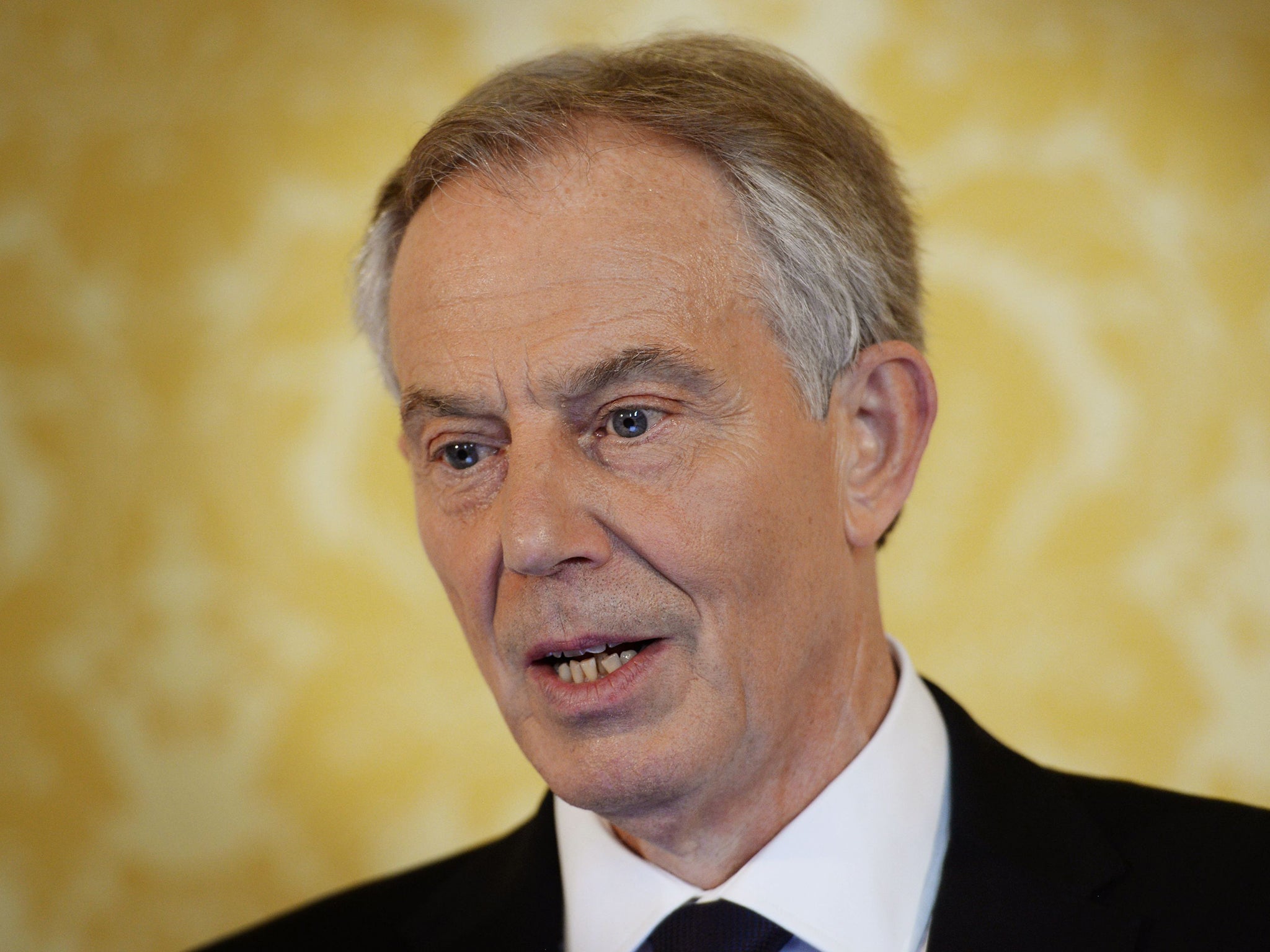Tony Blair admits he should have challenged intelligence that led to Iraq War
Former Prime Minister again defends decision and insists it was taken 'out of good motives'

Tony Blair has admitted he should have challenged the intelligence reports that informed his decision to take Britain to war in Iraq.
Responding to the damning findings of the Chilcot Inquiry, the former Prime Minister again defended the decision to go to war and insisted that it was taken “out of good motives” and that he believed the Middle East would be in a worse state today had Saddam Hussein not been removed.
However, speaking to BBC Radio 4’s Today programme in his first one-on-one interview since the report’s publication, he said that he carried regret over his failure to challenge the intelligence on Iraq’s weapons of mass destruction, which Sir John Chilcot said was “flawed”. The inquiry ruled that the intelligence led Mr Blair to present the dangers of Saddam Hussein’s weapons programme “with a certainty that was not justified”.
Asked what aspects of the war and his conduct he regretted, Mr Blair said: “Regret for the loss of life. Insofar as there were mistakes made, insofar as the intelligence was wrong and I relied on it, of course. Of course I regret in retrospect that we didn’t challenge it.
“When you go back over it, for example on the intelligence, yes in retrospect it would have been better to have challenged it, and I understand the mistakes in planning and so on and so forth and there are lots of things I take responsibility for and have expressed deep regret for,” he added.
Mr Blair, who has said he takes full responsibility for mistakes made by his government, but nevertheless refused to apologise for the decision to go war, said that he now accepted some people would never believe the sincerity of his regret for the loss of life caused.
“Sometimes, the problem is, I feel until I actually say to people, OK, I wish we hadn’t joined the American coalition, I wish we hadn’t got rid of Saddam, until I say that, people won’t really accept that I mean my regret,” he said.
“I can regret the mistakes and I can regret many things about it but I genuinely believe not just that we acted out of good motives, and I did what I did in good faith, I sincerely believe we would be in a worse position if we hadn’t acted in that way. I may be completely wrong about that. These are incredibly difficult judgements.”
How the British media covered the Iraq War
Show all 6He was however, defiant over the report’s revelations that he was given explicit warnings by the Foreign Office and intelligence services that the invasion of Iraq could plunge the country into a sectarian conflict that would fuel the rise of extremist groups – a prediction that would prove grimly accurate.
In his statement accompanying the report’s publication, Sir John said: “Mr Blair told the Inquiry that the difficulties encountered in Iraq after the invasion could not have been known in advance.
“We do not agree that hindsight is required. The risks of internal strife in Iraq, active Iranian pursuit of its interests, regional instability, and Al Qaida activity in Iraq, were each explicitly identified before the invasion.”
However, Mr Blair told Today that warnings on sectarian violence had been “very, very limited”. He also defended his record on the supply of vital equipment to British troops, following the report’s conclusion that soldiers were sent into combat under-prepared, and that the Ministry of Defence had been slow to respond to the emerging threats to troops, such as improvised explosive devices during the occupation of Basra.
“I don’t recall a single occasion on which we were asked for more resources, more equipment and didn’t say yes,” he said, adding that Downing Street had sent out the message to the armed forces that there was “no resource limitation”.
Subscribe to Independent Premium to bookmark this article
Want to bookmark your favourite articles and stories to read or reference later? Start your Independent Premium subscription today.

Join our commenting forum
Join thought-provoking conversations, follow other Independent readers and see their replies